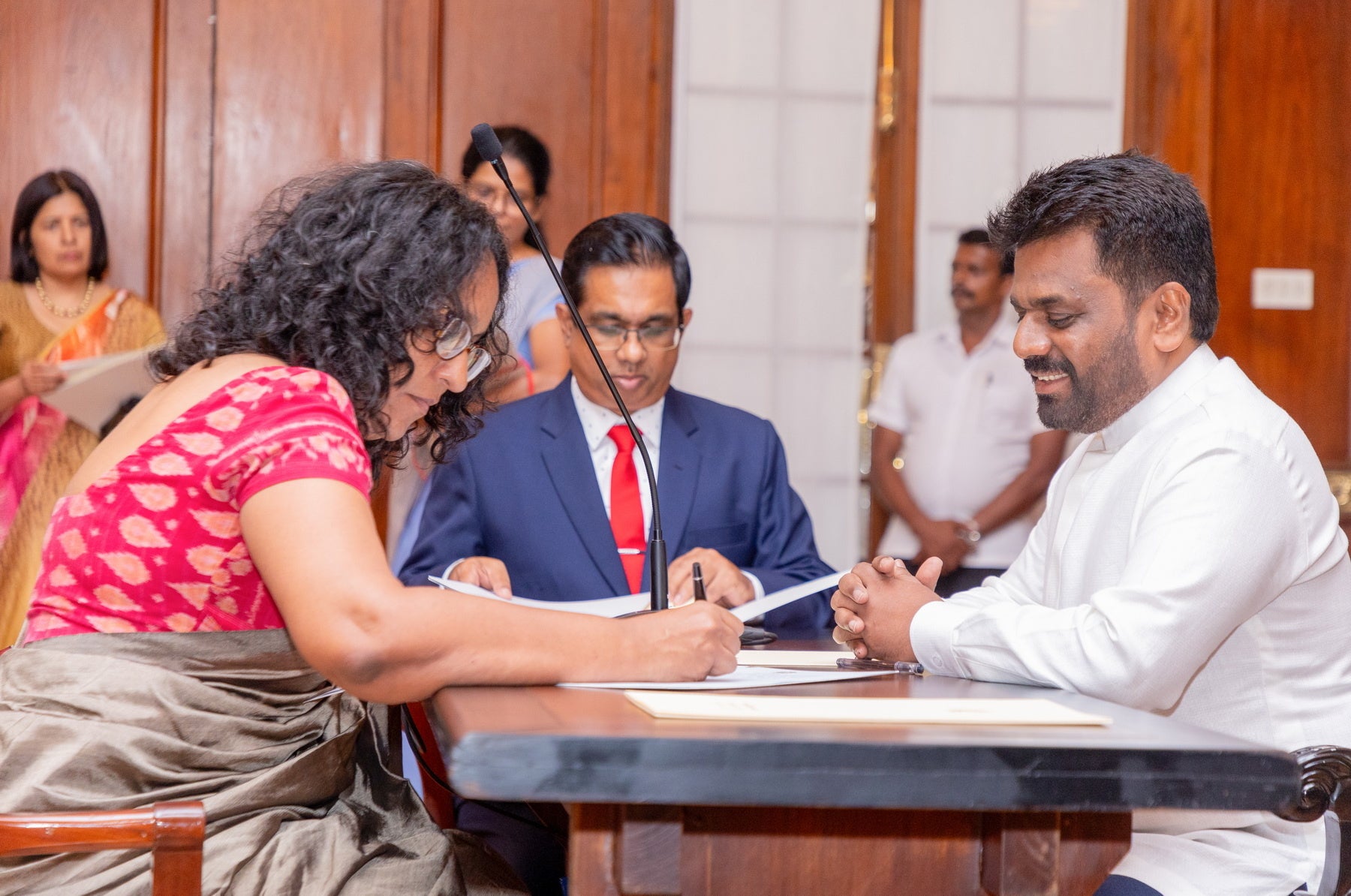New president appoints Sri Lanka’s first female prime minister in 24 years
Harini Amarasuriya named Sri Lanka’s first woman prime minister in 24 years

Your support helps us to tell the story
From reproductive rights to climate change to Big Tech, The Independent is on the ground when the story is developing. Whether it's investigating the financials of Elon Musk's pro-Trump PAC or producing our latest documentary, 'The A Word', which shines a light on the American women fighting for reproductive rights, we know how important it is to parse out the facts from the messaging.
At such a critical moment in US history, we need reporters on the ground. Your donation allows us to keep sending journalists to speak to both sides of the story.
The Independent is trusted by Americans across the entire political spectrum. And unlike many other quality news outlets, we choose not to lock Americans out of our reporting and analysis with paywalls. We believe quality journalism should be available to everyone, paid for by those who can afford it.
Your support makes all the difference.Sri Lanka’s new president Anura Kumara Dissanayake has named Harini Amarasuriya, a member of his National People’s Power (NPP) coalition, as the country’s prime minister.
The leftist president, popularly known as AKD, was sworn into office on Monday after securing a landslide victory in the first presidential election held since the anti-government protests in 2022 that forced then-president Gotabaya Rajapaksa to resign and flee.
He called for snap parliamentary elections after dissolving parliament shortly after his weekend election victory.
Ms Amarasuriya, 54, is the first woman in more than two decades and the only third woman in the history of independent Sri Lanka to take charge as the prime minister. She is a sociology lecturer and known for her activism on gender and minority rights.
The last woman to serve as prime minister was Sirimavo Bandaranaike, who became the world’s first female head of government after the post in 1960. Her daughter Chandrika Kumaratunga took office in 1994.
A government notification on Tuesday said that the 225-member parliament was dissolved effective midnight and that the fresh election was set for 14 November, nearly a year ahead of schedule.
The move is seen as the president's bid to consolidate power in parliament, where Mr Dissanayake's NPP holds just three seats. “We will have the smallest cabinet in the history of Sri Lanka,” party member Namal Karunaratne told reporters.
Mr Dissanayake's lack of a majority makes it difficult for him to appoint a fully-fledged cabinet, and he had vowed during the campaign to dissolve parliament and call a snap election. The present parliament's five-year term ends next August.
Despite being a minority in parliament, the 2022 protests triggered by the economic crisis in the island paved the way for Mr Dissanayake's rise to power. "Your commitment has brought us this far, and for that, I am deeply grateful. This victory belongs to all of us,” he wrote in a post on X after securing 42 per cent of votes.
"The task facing her is extraordinarily challenging, but she is a woman of extraordinary capacities," Jonathan Spencer, emeritus professor at the University of Edinburgh, told The Hindu.
Mr Dissanayake retained the defence, energy and agricultural portfolios while handing over justice, education, labour, science, health and investment ministries to the prime minister.
A third member of the coalition, Vijitha Herath, was appointed the new foreign minister with an additional charge of public security.
The president will address the nation on Wednesday as he prepares to renegotiate the economically embattled country's International Monetary Fund (IMF) bailout programme.
Former prime minister Ranil Wickremesinghe, who secured the third-highest votes in the presidential election had warned that any move to alter the basics of the bailout agreement would delay the release of a fourth tranche of nearly $3bn (£2.24bn).
“We will not shred the agreement,” said Bimal Ratnayake, a senior aide to the new president. "It is a binding document, but there is a provision to renegotiate," he told AFP.
The IMF offered its congratulations to Mr Dissanayake, saying it "looked forward to working together with the president ... towards building on the hard-won gains that have helped put Sri Lanka on a path to economic recovery".
Join our commenting forum
Join thought-provoking conversations, follow other Independent readers and see their replies
Comments